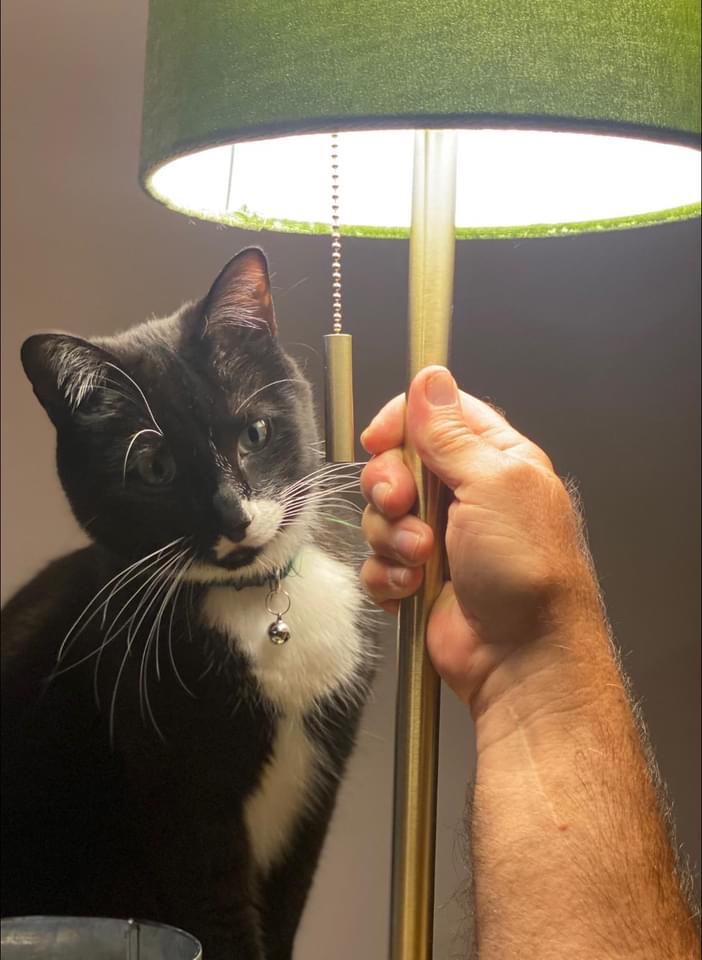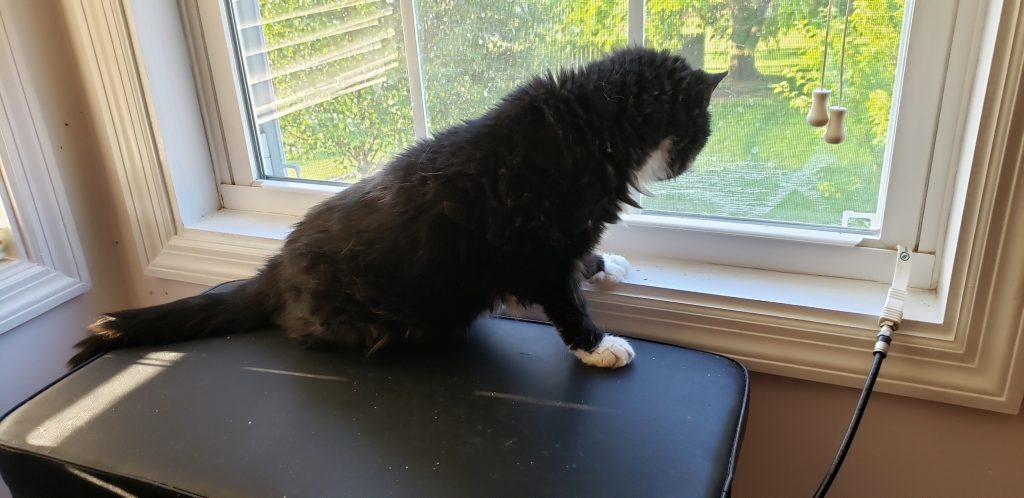How Often Should You Take Your Cat To The Vet?

I’ve known people that have cats out on their farms for years and have never taken their cats to the vet.
And on the other hand, I know folks who think because their cats are indoor cats, they don’t need to take them.
I know various cat owners that take their cats to the vet nearly every month.
So, just how often should you take your cat to the vet?
The American Animal Hospital Association recommends that all cats should visit the vet at least once a year.
Well, this is going to vary with different species of cats, the cat’s age, their health, and other factors, but on average, according to The American Animal Hospital Association, they recommend you should have vet visits at least yearly with your adult cat.
Let’s look at the different factors involved and see where your feline friend fits in.
Your Kitten’s Vet Visits

First of all, the age of your feline is a big factor in the frequency of visits to the vet. As a general guideline, most vets recommend you bring your kitten in once it’s reached eight weeks old and continue every three to four weeks until they’re around four months old.
This is because young kittens will need various vaccines and vaccine boosters during this time. These will include the feline leukemia vaccine, FVRCP vaccine, and shots for feline distemper and rabies vaccine.
The rabies vaccine booster will be given again at the one-year mark and then usually every three years after that.
During these first four-month visits deworming treatments are also given because the majority of kittens get intestinal worms from their mother. Also, flea and tick prevention will be discussed.
Once they’ve reached five to six months of age, vet clinics suggest you have your kitten spayed or neutered.
Your Adult Cats Vet Visits

You should be taking your adult cats to the vet once a year up to nine or ten years old. However, keep in mind that health issues and pre-existing conditions may require more frequent vet visits.
While healthy adult cats can get by with a vet visit once a year, chronic conditions, like diabetes or kidney disease, need more regular monitoring and adjustment of treatment plans to ensure optimal health and good quality of life.
When you take your cat to the vet, during the visit the vet will check your feline from head to toe looking for early signs of diseases or other health concerns they may have such as parasites or dental disease.
They’ll also make sure your kittens stay current with their vaccines and vaccine boosters.
The vet will have conversations with you about your feline’s diet and any nutritional needs.
Remember, cats are masters at masking signs of illness, so regardless of how healthy your cat may appear, get that yearly veterinary visit scheduled.
There’s nothing better than knowing you have a healthy adult cat and as pet parents, it’s our responsibility.
Your Senior Cats Vet Visits

Your kitten is considered a senior at eleven years old. And just like us, as senior cats grow older they need more frequent visits to the doctor to stay on top of any conditions that may be trying to creep in.
Most vets recommend you bring your senior cat to the vet every six months.
Arthritis and organ function decline are regular haunts for senior cats and because of these possibilities, more visits during the year may be required.
Also, because of problems in older cats with kidney disease and diabetes, your vet may suggest blood tests and urinalysis to catch these early on.
Another common issue with senior cats is joint pain that the vet may be able to provide comfort.
So, to be safe, if you have a senior cat, ask your vet how often you should visit.
To And From The Vet
My grandmother always took her little kitten to the vet by merely holding her in her lap for the drive there while someone else drove. Even as the kitten got older, she’d hold her like you would a baby and carry her in her arms into the vet’s office. Using a cat carrier never crossed her mind.
Most of us probably aren’t lucky enough to have a cat that would be as calm as my grandmother’s cat was, so, I’d suggest a cat carrier to transport your kitten or cat to and from the veterinarian’s clinic.
Your cat carrier can come in all sizes and shapes and if the weight is not too much, you can purchase a cat carrier equipped to carry multiple cats. (assuming they get along)
Whatever you end up with, a cat carrier would be the safest way of travel to transport your cat to the vet.

In Conclusion
Regular veterinary care is vital for the well-being of our feline companions. Whether it’s a routine check-up, preventive care, or treatment for an existing condition, frequent visits to the vet help ensure the early detection of illnesses and enhance the quality of life for cats.
By investing time and effort into their veterinary care, we can provide our furry friends with a healthy and fulfilling life.
Remember, a trip to the veterinarian is not just an obligation; it’s an act of love and responsibility towards our cherished companions.
Disclosure: Please note that some of the links above are affiliate links and at no additional cost to you, I’ll earn a commission. When you purchase a product using one of my affiliate links, the company compensates me, which helps me run this blog and keep all of my in-depth content free of charge for readers.